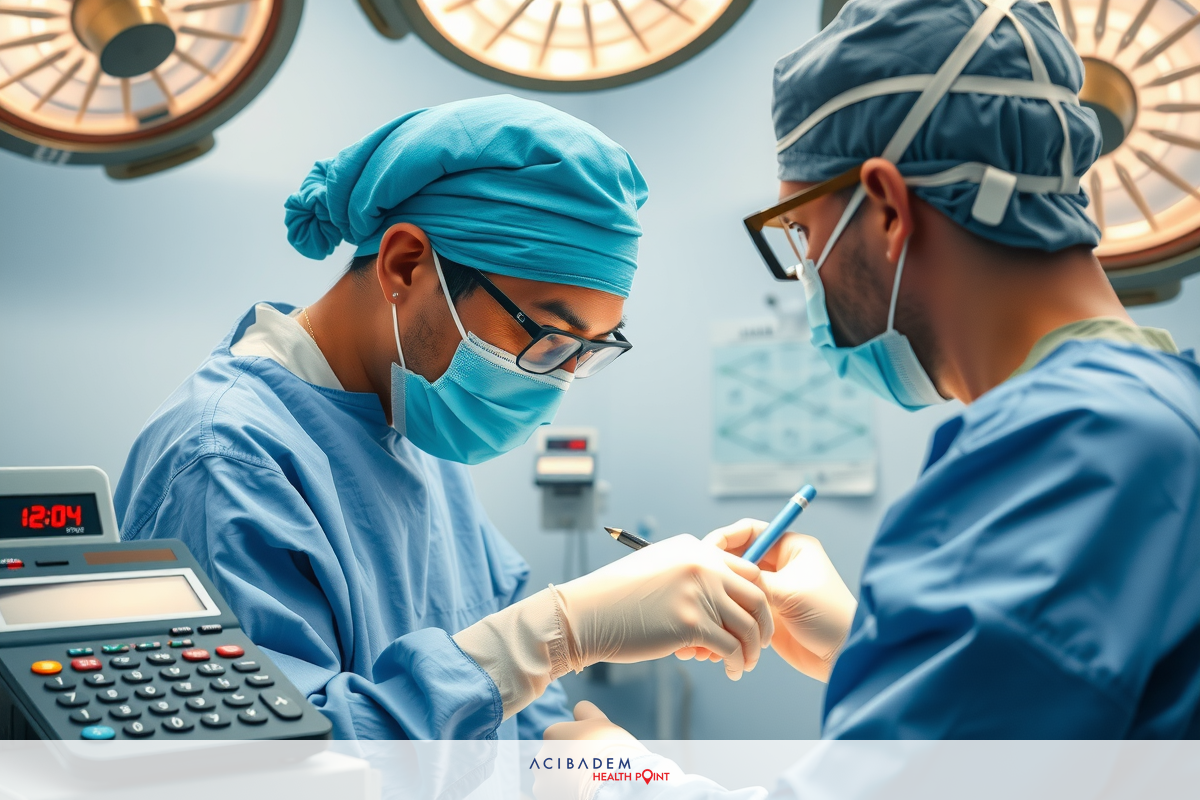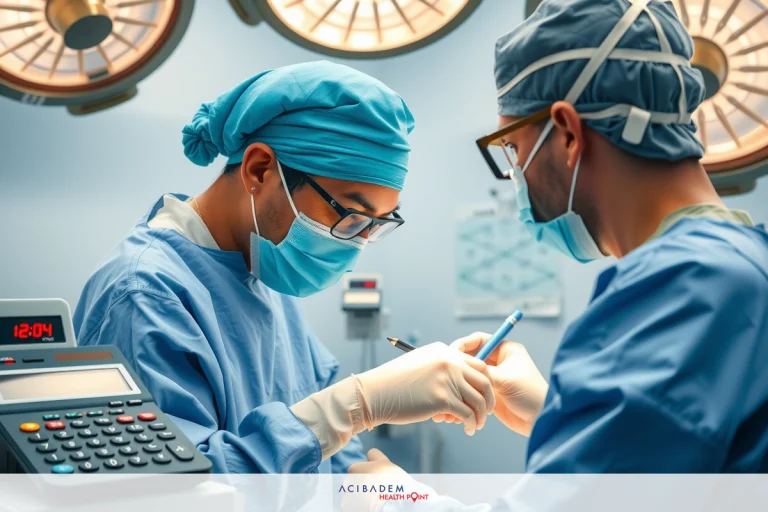How Much is Rhinoplasty Nose Surgery?
How Much is Rhinoplasty Nose Surgery? Rhinoplasty is a surgical procedure aimed at improving the function or appearance of the nose. With its high demand, many individuals are curious about the cost associated with this procedure. It’s important to note that the price can vary greatly depending upon several factors such as surgeon’s experience, geographical location, and the complexity of the procedure.
Understanding the financial aspect of rhinoplasty is crucial before making a decision. This article aims to provide valuable insights into the average cost of rhinoplasty, factors affecting these costs, and potential financing options. Additionally, we will discuss the role of insurance in covering these expenses. Through this article, you will gain necessary knowledge regarding the economic aspects of rhinoplasty surgery.
How Much is Rhinoplasty Nose Surgery?: Factors Affecting the Cost of Rhinoplasty
The cost of rhinoplasty can vary significantly from one patient to another. One of the primary factors affecting the cost is the surgeon’s expertise. Renowned surgeons with years of experience and a proven track record of successful surgeries typically charge more for their services. However, this increased cost often comes with the assurance of quality work and fewer risks.
Another significant factor influencing the cost is the complexity of the surgery. Rhinoplasty can range from minor adjustments to major reconstructions, and the level of complexity directly correlates with the cost. For instance, a procedure that involves straightening the nose or removing a hump will be less expensive than one that requires altering the nose’s size, reshaping the tip, or correcting a deviated septum. Furthermore, whether the rhinoplasty is primary (first-time) or secondary (revision) can also influence the price, with revision surgeries typically costing more due to their complexity.
Geographical location also plays an important role in determining the cost of rhinoplasty. In areas where the cost of living is high, such as large metropolitan cities, you can expect to pay more for rhinoplasty. Similarly, if a clinic has state-of-the-art facilities and advanced technology, they may charge higher prices. Additionally, other costs associated with the surgery such as anesthesia fees, operating room fees, pre- operative tests, post-surgery care and medications also contribute to the overall cost.
Lastly, it’s important to note that while pricing is an essential factor to consider when planning for rhinoplasty, it should never be the sole deciding factor. The surgeon’s expertise, your comfort with them and their team, and their understanding of your aesthetic goals are equally crucial considerations.

How Much is Rhinoplasty Nose Surgery?: Average Cost of Rhinoplasty
Determining the average cost of rhinoplasty can be a complex task due to the wide range of prices across different regions and surgeons. However, for a general idea, it’s often reported that in the United States, the average surgeon’s fee for a rhinoplasty procedure is around $5,000 to $10,000. This price range only includes the surgeon’s fee and does not account for additional costs such as anesthesia, operating room facilities, or other related expenses.
It’s crucial to keep in mind that these are just average figures. The actual cost can fall below or exceed this range based on various factors discussed in the previous section like the surgeon’s expertise, the complexity of the procedure, and geographical location. Moreover, each patient has unique needs and goals for their rhinoplasty surgery, meaning that the pricing can be highly individualized. Therefore, it’s best to consult with a few surgeons to get a more accurate estimate based on your specific case.
When discussing the cost with potential surgeons, it’s important to understand what is included. Some clinics might offer a package that includes all aspects of the surgery – from the initial consultation and pre-operative tests, through to the surgery itself and follow-up care. Others may only quote the surgical fee and charge additional fees for anesthesia, use of the operating facility and post-operative care separately. Transparency about these costs is key to avoid surprises later on. Remember that quality service and results should be prioritized over cost; a lower price tag might not guarantee satisfactory results or a safe procedure.
How Much is Rhinoplasty Nose Surgery?: Financing Options and Insurance Coverage
Navigating the financial aspects of rhinoplasty surgery can be challenging, but there are several options available that can make it more manageable. Many surgical clinics offer financing plans for their patients. These plans often allow patients to break down the total cost of the surgery into more manageable monthly payments. Some clinics have partnerships with medical credit companies that provide loans specifically for healthcare expenses. It’s important to fully understand the terms of these financing options, including interest rates and possible penalties for late or missed payments.
In addition to financing plans offered by clinics, some patients choose to use personal loans or credit cards to cover the cost of their rhinoplasty surgery. It’s crucial to understand that while these methods may make the surgery more immediately affordable, they also come with potential risks such as high-interest rates and impact on credit score. Therefore, these options should be considered carefully and used responsibly.
As for insurance coverage, it’s generally rare for health insurance plans to cover the cost of cosmetic surgeries such as rhinoplasty. However, if the surgery is being performed for medical reasons – for instance, to correct a breathing problem or a deformity caused by injury – there may be a possibility that your health insurance will cover part or all of the costs. Each insurance company has its own policies regarding what procedures they cover, so it’s important to consult with your insurance provider to understand what your policy covers and what out-of-pocket expenses you may be responsible for. It’s also beneficial to discuss this with your surgeon during the consultation period to ensure that necessary documentation is provided for insurance claims if applicable.
Frequently Asked Questions
How long does the recovery period typically take after rhinoplasty?
The recovery period for rhinoplasty can vary depending on several factors, including the extent of the surgery and individual healing capabilities. Generally, patients can expect some swelling and bruising around the nose and eyes for the first week or two. Most people are able to return to work or school within 1-2 weeks, although it may take a few months for all swelling to fully subside.
Are there any non-surgical alternatives for rhinoplasty?
Yes, there are non-surgical alternatives available for individuals who want to enhance the appearance of their nose without undergoing surgery. Non- surgical rhinoplasty, often referred to as liquid or filler rhinoplasty, involves the use of dermal fillers to reshape and contour the nose. This procedure is temporary and can provide results without the need for incisions or downtime. It's essential to consult with a qualified and experienced medical professional to determine if you are a suitable candidate for non-surgical options.
Will rhinoplasty completely change the way my nose looks?
Rhinoplasty is a highly customizable procedure that can address specific concerns and improve the overall appearance of your nose. However, it's important to have realistic expectations about the outcome. A skilled surgeon will work closely with you to understand your desired aesthetic goals and create a result that enhances your natural features rather than completely changing your appearance. During your consultation, be sure to communicate your expectations clearly so that you and your surgeon can be on the same page.
Can I wear glasses or sunglasses after rhinoplasty?
Wearing glasses or sunglasses directly after rhinoplasty can put pressure on the healing nasal bones and potentially affect the final result. To avoid this, it's recommended to avoid wearing glasses for several weeks or as advised by your surgeon. Alternatively, you may be able to use tape or other support methods to secure the glasses without putting pressure on the nose. It's best to consult with your surgeon for specific instructions on when and how you can safely resume wearing glasses.
Are there any risks or complications associated with rhinoplasty?
Like any surgical procedure, rhinoplasty carries some risks and potential complications. These can include infection, bleeding, adverse reactions to anesthesia, scarring, asymmetry, or dissatisfaction with the final result. However, these risks are relatively rare, and choosing a skilled and experienced surgeon can significantly minimize them. It's important to have a thorough discussion with your surgeon about potential risks and complications before proceeding with the surgery.










